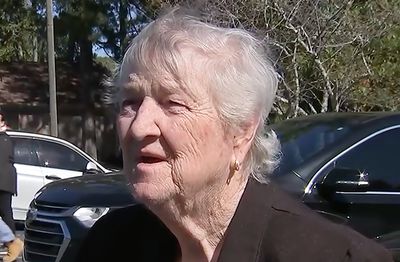Betty Cartledge, an 81-year-old woman from Covington, Georgia, has become an unexpected internet sensation after casting her vote for the first time in the 2024 US presidential election. Her story, which highlights issues of voter suppression and women’s rights, has sparked widespread discussion on social media.

For decades, Cartledge abstained from voting, influenced by her late husband’s belief that she shouldn’t participate in elections. “I was so young and everything when we got married, I never really thought about it,” Cartledge told WSB-TV Atlanta. “And then I got old, and I thought that it wouldn’t count to vote.”
Following her husband’s death last year, Cartledge decided to exercise her right to vote for the first time. She visited an early voting location in Covington on October 16, just days before her 82nd birthday. “I’m going to vote for the first time in my life,” she declared, emphasizing the importance of voting at any age.
Cartledge’s experience at the polls was positive, describing it as “neat” and expressing her likelihood to return for future elections. Her story quickly gained traction on social media, eliciting a range of reactions from users across various platforms.
Many congratulated Cartledge on her inaugural vote, while others expressed dismay at the circumstances that had previously prevented her from participating in the democratic process. Some commenters used the opportunity to discuss the broader implications of voter suppression and the historical struggles for women’s suffrage.
“How many women in America are there who are repressed by controlling husbands? Unfortunately, I have a feeling there are quite a few,” one social media user noted, highlighting the ongoing relevance of Cartledge’s story.
The timing of Cartledge’s first vote coincides with a highly contentious presidential race between Vice President Kamala Harris and former President Donald Trump. Recent polls show a tight race, with Harris leading by just one point, underscoring the potential impact of every vote, including those of first-time voters like Cartledge.
This story serves as a poignant reminder of the ongoing challenges to voting rights and the importance of encouraging civic participation across all demographics. As the 2024 election approaches, Cartledge’s experience may inspire others who have felt disenfranchised to engage with the democratic process and make their voices heard at the ballot box.



